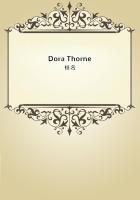And accordingly Apollo was the field-word in the dreadful day of that fight. Divers notable things of old have likewise been foretold and known by casting of Virgilian lots; yea, in matters of no less importance than the obtaining of the Roman empire, as it happened to Alexander Severus, who, trying his fortune at the said kind of lottery, did hit upon this verse written in the Sixth of the Aeneids--Tu regere imperio populos, Romane, memento.
Know, Roman, that thy business is to reign.
He, within very few years thereafter, was effectually and in good earnest created and installed Roman emperor. A semblable story thereto is related of Adrian, who, being hugely perplexed within himself out of a longing humour to know in what account he was with the Emperor Trajan, and how large the measure of that affection was which he did bear unto him, had recourse, after the manner above specified, to the Maronian lottery, which by haphazard tendered him these lines out of the Sixth of the Aeneids--Quis procul ille autem, ramis insignis olivae Sacra ferens? Nosco crines incanaque menta Regis Romani.
But who is he, conspicuous from afar, With olive boughs, that doth his offerings bear?
By the white hair and beard I know him plain, The Roman king.
Shortly thereafter was he adopted by Trajan, and succeeded to him in the empire. Moreover, to the lot of the praiseworthy Emperor Claudius befell this line of Virgil, written in the Sixth of his Aeneids--Tertia dum Latio regnantem viderit aestas.
Whilst the third summer saw him reign, a king In Latium.
And in effect he did not reign above two years. To the said Claudian also, inquiring concerning his brother Quintilius, whom he proposed as a colleague with himself in the empire, happened the response following in the Sixth of the Aeneids--Ostendent terris hunc tantum fata.
Whom Fate let us see, And would no longer suffer him to be.
And it so fell out; for he was killed on the seventeenth day after he had attained unto the management of the imperial charge. The very same lot, also, with the like misluck, did betide the Emperor Gordian the younger.
To Claudius Albinus, being very solicitous to understand somewhat of his future adventures, did occur this saying, which is written in the Sixth of the Aeneids--Hic rem Romanam magno turbante tumultu Sistet Eques, &c.
The Romans, boiling with tumultuous rage, This warrior shall the dangerous storm assuage:
With victories he the Carthaginian mauls, And with strong hand shall crush the rebel Gauls.
Likewise, when the Emperor D. Claudius, Aurelian's predecessor, did with great eagerness research after the fate to come of his posterity, his hap was to alight on this verse in the First of the Aeneids--Hic ego nec metas rerum, nec tempora pono.
No bounds are to be set, no limits here.
Which was fulfilled by the goodly genealogical row of his race. When Mr. Peter Amy did in like manner explore and make trial if he should escape the ambush of the hobgoblins who lay in wait all-to-bemaul him, he fell upon this verse in the Third of the Aeneids--Heu! fuge crudeles terras, fuge littus avarum!
Oh, flee the bloody land, the wicked shore!
Which counsel he obeying, safe and sound forthwith avoided all these ambuscades.
Were it not to shun prolixity, I could enumerate a thousand such like adventures, which, conform to the dictate and verdict of the verse, have by that manner of lot-casting encounter befallen to the curious researchers of them. Do not you nevertheless imagine, lest you should be deluded, that Iwould upon this kind of fortune-flinging proof infer an uncontrollable and not to be gainsaid infallibility of truth.















